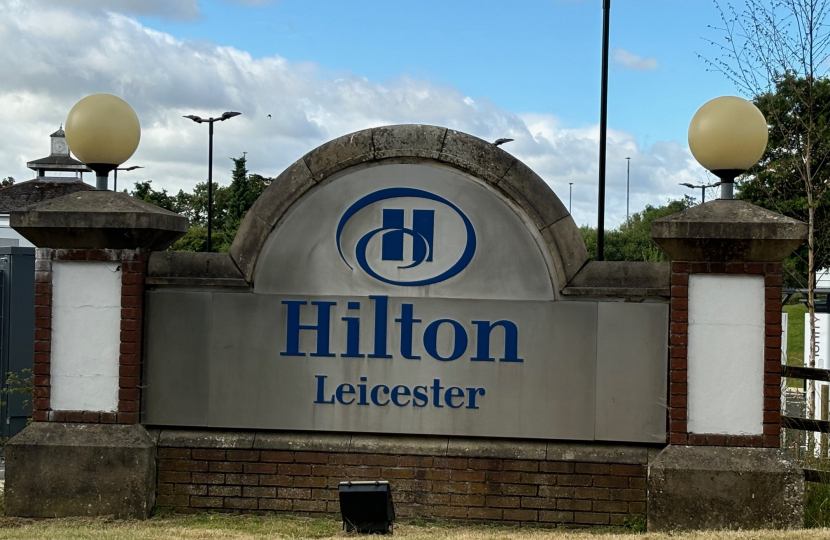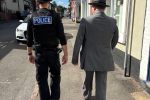
On 28 June I had the privilege of opening the Leicester, Leicestershire and Rutland Human Trafficking and Modern Day Slavery Conference that was held at the Leicester Hilton Hotel. The Conference brought together representatives from the police, local authorities, charities and others working in this sector. The purpose of the conference was to bring together the main actors in the struggle to combat these awful crimes so that we could discuss the problems and difficulties of the task - and then find ways forward. I'm delighted to say that by the end of the day we had made great progress. Watch my social media and this website for updates over the coming months.
Here is the speech I made on opening the Conference:
First I want to thank you all for attending. It is great to see so many people here – and representing so many different organisations from the public sector, private sector and charity sector. I also want to thank Grace and Claire for having organised this important event, and Rahma for her invaluable logistical assistance today.
It is not always recognised how widespread the problems of human trafficking and modern day slavery are in modern Britain.
Nor are they new issues here in our area.
The Romans and the Celts before them were slave traders on a major scale – as were the Vikings. But our local population were not immune either. The Domesday Book of 1086 records that there were four slaves living in Narborough just over the road there. Indeed around 12% of the population of Leicestershire were slaves at that date.
I note that we have a lady from the Leicester Christian Council against Modern Day Slavery. Where are you?
Well, thank you for coming. And it was your predecessors who were instrumental in stamping out slavery. By 1150 the Christian Church had adopted an anti-slaver stance and were preaching that it was every Christian’s duty to liberate their slaves. It took time but eventually slavery vanished from England. The last English slave in the written record died in 1401.
Some years later English law caught up when slavery was ruled to be in violation of Habeas Corpus.
Slavery was later abolished right across the British Empire. And the Royal Navy expended huge amounts of time, money and lives fighting to close down the slave trade on the high seas. Eventually they succeeded. A huge credit to the UK and our commitment to fight slavery.
Meanwhile, what we would today recognise as “modern day slavery” had arisen in the form of indentured servitude. It was actually the UK state which was the biggest user. Criminals were routinely sentenced to indentured servitude – slavery by another name – for periods of time varying from a few months to life.
They did not serve their sentences in the UK, of course. At first they were sent to the American colonies. But after they became unavailable due to a short war, these criminals were sent to Australia.
Sentencing to transportation ended in 1868, by which time over 160,000 men and women had been sent “down under”.
In 1907 it was made a criminal offence to force others into criminal acts. You remember Fagin with his gang of pickpockets? That now became illegal for the Fagins, not just the pickpockets.
And so this country has a proud record of fighting against slavery.
That brings us to the 2015 Modern Slavery Act. That consolidated previous laws, put in place new mechanisms to seize the assets of those convicted and established the position of Independent Anti-Slavery Commissioner. That position is now held by the eminent and very able Eleanor Lyons, who has kindly agreed to join this meeting via Teams.
And so if we could all turn to the screen, it is my pleasure to introduce Eleanor Lyons.


